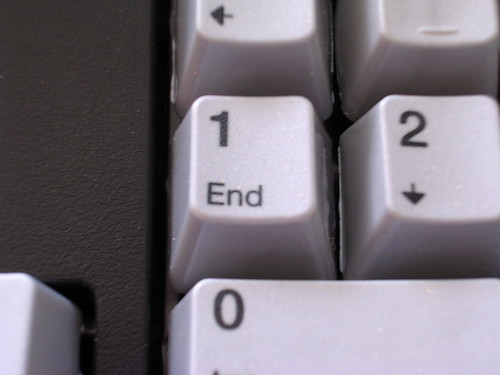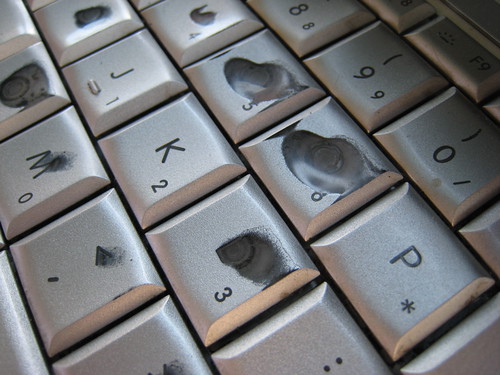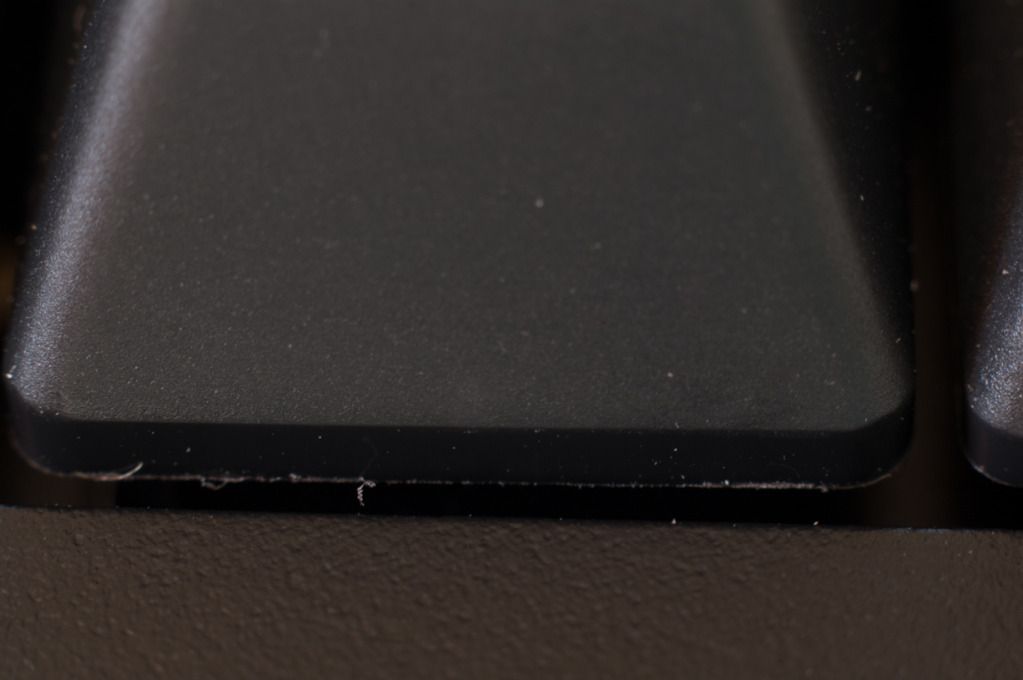First of all, you
are right, there is something wrong with your keycaps.
glossywhite wrote:1/ This keyboard is £90, and I do not find it at all unreasonable to expect a cosmetically well finished product for £90.
2/ The Apple keyboards, both the previous and current generation, £20 and £40 respectively, are both utterly flawless, and finished beautifully; no mould marks. The Cherry G80-3000 I have is £58, and finished very well; no mould marks.
I hardly consider £90 to be a "cheap" keyboard. Unicomp apologists are to be expected on a forum where the general consensus is that the Model M is the keyboard of choice, but even you cannot reasonably and logically argue that shoddy finish like this is acceptable, because I didn't pay ~£3,000 and get the PC that originally came with the IBM Model M, in order to justify the original Model M finish quality?
Your comparison doesn't hold. The Unicomp is a niche product whereas Apple keyboards sells peripherals by the thousands. It thus pays for Apple to make perfectly finished keyboards and still make a profit thanks to the large volumes of sold products.
glossywhite wrote:I'm sure you all spend hundreds on keyboards and parts, being keyboard enthusiasts, but let's forget that and put it to one side for the moment, and get back to reality... this is still costing people NINETY POUNDS.
Someone mentioned that I could expect to pay £200 for a keyboard with acceptable cosmetic finish... so are you telling me that it costs £110 for someone to buff off the edges of a few key caps? No, you can't be - that would be ridiculous.
I really don't want to draw this out too much, but Unicomp's excuses aside, this is still NINETY POUNDS for an unfinished product, and you're still trying to justify that with outlandish logic. I'm not expecting the key caps to be gold plated, I am expecting them to be of as high a quality finish, cosmetically, as a £5 keyboard that one may purchase from Argos or PC World, and they're not, and something is worryingly wrong about this, when a company is milking the reputation of a past product, constructed to a higher standard, and yet not even bothering to ensure that the quality of the product reflects the well documented reputation it is living up to.
It's called "They don't make them like they used to", and this is surely evidence of that. They don't.
I have a biro here which cost 30p, and no mould marks.
You are right, it's £90 compared to £5 for a cheap rubber dome. However, the latter is simply a damn-cheap mass-produced keyboard which simply skews your whole perspective. They used to make tough stuff back in the day, but it cost you an arm and a leg.
Free-market principles started the race to the bottom, and China is sure pushing prices down. So Unicomp tries to follow and wears out its molds, but since they don't sell so much as the average Chinese factory, they don't seem to find it worthwile to fix their molds or employ someone to file off those marks. I guess they just had to choose: raise their price or simply try to sell it anyway and see who complains.
glossywhite wrote:Geeks, this is the real world, where real people spend real money, and many of them are NOT Unicomp apologists or keyboard geeks, and they spend their days working hard to provide money for their families, and when they spend £90 on a keyboard, they're going to look at the quality, and justifiably complain when it looks like a cheap knock-off, because of a little tidy-up job that Unicomp skimped on. It would benefit Unicomp massively to lose a few £'s per item, but tighten up the cosmetic appearance of their product so that people wouldn't feel as if they'd been fleeced.
I value this keyboard at £50, £60 maximum, in present condition, considering I have just sealed a deal for TWO IBM Model M's for £60.
I can't say how much it costs to make a Unicomp, but again, it's them who are selling a niche product and who need to keep the company running. Ask for a refund or a fix with them
Oh, and model Ms are cheap mainly because so many got in disuse, became incompatible with modern PS/2 ports or simply break of old age. They're written off, and the only thing keeping prices up is the demand of the collectors.


